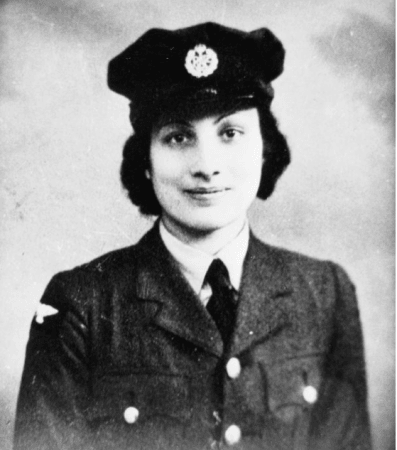
In a move that is bound to make Indians proud, World War II hero and Indian-origin spy Noor Inayat Khan may appear on the new £50 note that is set to be issued in 2020. The Bank of England announced that it would be printing a new polymer version of the note and said that people could nominate a few names.
Post the announcement, activist Zehra Zaidi is said to have started a campaign nominating Khan's name. The campaign went on to receive the support of several other activists, historians and ministers and they believe that this is a good way to raise awareness and honour the Indian-origin spy.
Speaking of Khan and why Zaidi chose her name, she told the Telegraph that the spy was a "heroine to all."
"Noor Inayat Khan was an inspirational and complex woman who was a Brit, a soldier, a writer, a Muslim, an Indian independence supporter, a Sufi, a fighter against fascism and a heroine to all. She navigated complex identities and has so much resonance in the world we live in today." Zaidi told the daily.
Transport Minister Nusrat Ghani also lauded Khan and said this was a great way to remember her work and the kind of sacrifices she made. "The more you learn about her, the more you learn how brave and bold she was. "It's also interesting and important to note her faith, which drove her to make this ultimate sacrifice and serve her country," the Telegraph quoted him as saying.
With such widespread support, the campaign has really taken off and the petition is said to have about 1,800 signatures, urging the Bank of England to feature Khan on the new £50 note.
Who is Noor Inayat Khan?
- Noor-un-Nisa Inayat Khan, born on January 1, 1914, was the daughter of Pirani Ameena Begum, an American, and Inayat Khan, an Indian Muslim and a direct descendent of Tipu Sultan's uncle.
- A British heroine of World War II, she was born in Moscow and also went by the names Nora Inayat Khan and Nora Baker.
- In 1940, she joined the Women's Auxiliary Air Force (WAAF) and was trained as a wireless officer. However, she later applied for a commission and joined the F (France) Section of the Special Operations Executive (SOE).
- In 1943, she was posted to the Air Ministry.
- She was later flown to Northern France to work as a wireless operator. The region was, at the time, occupied by the Nazis.
- There, Khan was reportedly betrayed to the Germans and she was arrested and interrogated. She never spoke of her activities and often lied to her interrogators.
- She even attempted escape twice and managed to escape the third time. However, she was recaptured and asked to sign a declaration promising that she would try to escape again. When she refused, Khan was taken to Germany for "safe custody" and kept in solitary confinement.
- Here too she was constantly questioned on her work and fellow workers. She was then classified as "highly dangerous" and kept shackled. Fellow prisoners are known to have heard her crying at night.
- She was executed on September 13, 1944. It is said that Khan was brutally beaten up and shot from behind. Her last word is said to be Liberté, which means freedom.
- Khan was posthumously honoured with the George Cross, the highest civilian award in the UK, in 1949, and the French Croix de Guerre with silver star.
- A bronze bust was unveiled in her honour on November 8, 2012 in Gordon Square Gardens, London.
- She was also commemorated on a stamp issued by the Royal Mail on 25 March 2014








